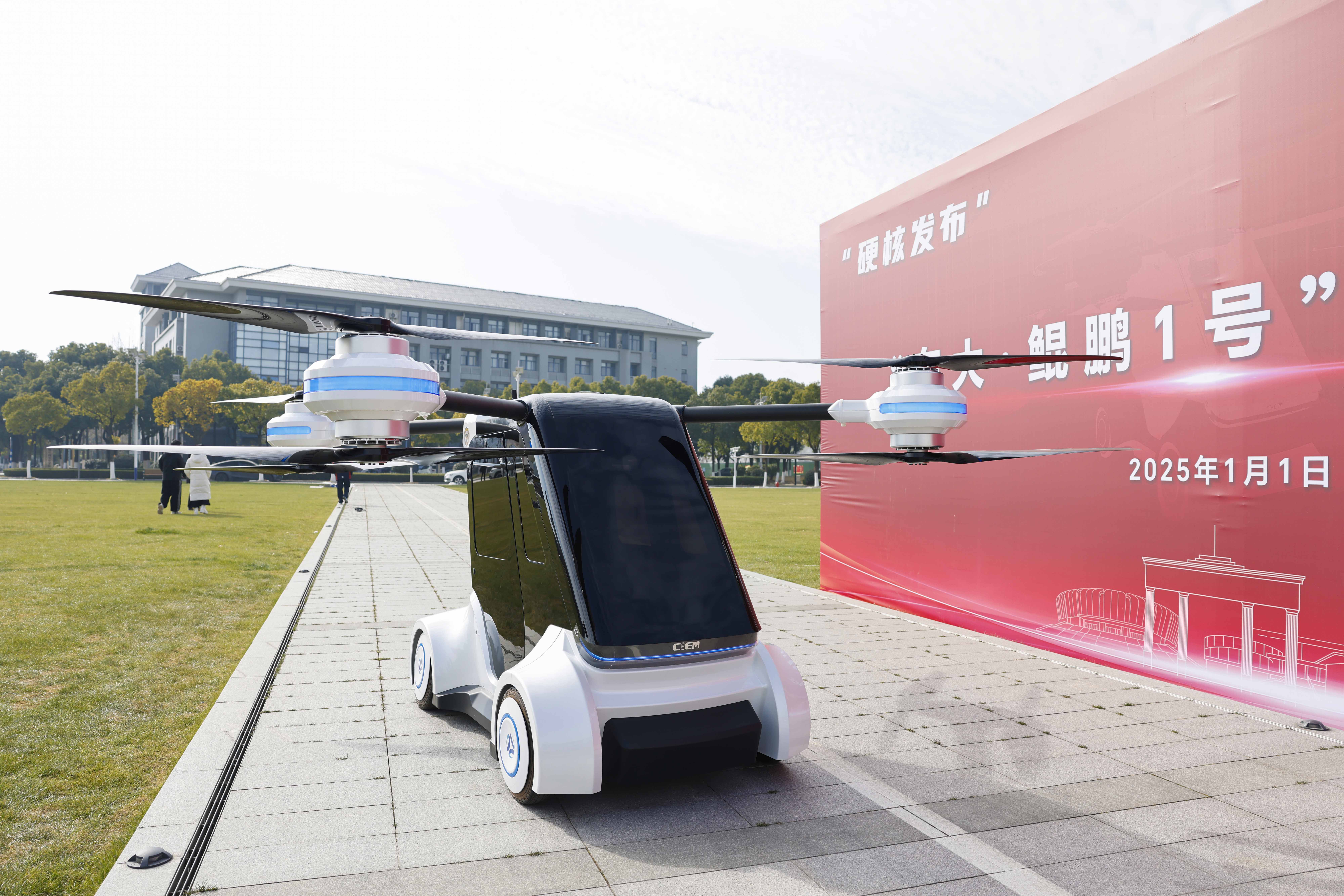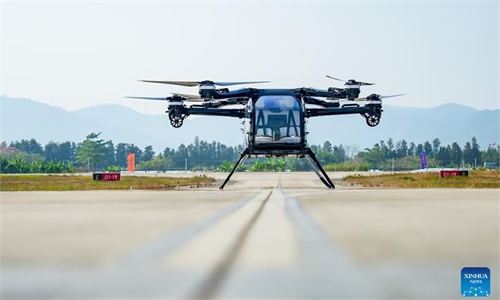China’s first distributed electric-driven flying car unveiled by Southeast University

China's first distributed electric-driven flying car - Southeast University Kunpeng No.1 - was developed and unveiled by a research team at Southeast University in East China's Jiangsu Province on January 1, 2025. Photo: Courtesy of Southeast University
China's first distributed electric-driven flying car - Southeast University Kunpeng No.1 - was developed and unveiled by a research team at Southeast University in East China's Jiangsu Province. It features full steering and all-wheel drive capabilities, according to a press release sent to the Global Times by Southeast University on Thursday.
The vehicle features a configuration with four coaxial rotors. Yin Guodong, the project leader, also a professor from School of Mechanical Engineering of Southeast University noted that the research aims to pioneer new modes of transportation for the future and contribute more efforts to the low-altitude economy.
Unlike traditional electric vertical take-off and landing aircraft, the Southeast University Kunpeng No.1 is designed as an integrated land-air vehicle, which combines the ground mobility as well as the movement capabilities of aerial vehicles, according to the university.
"This is China's first flying car based on distributed electric drive technology, using a car as its primary carrier, rather than relying on drone technology, enabling smooth transitions between driving on the ground and flying in the air," said Yin.
With a maximum take-off weight of 500 kilograms, the vehicle has a flight endurance of at least 20 minutes and reaches a maximum flying height of more than 300 meters. In ground mode, it can achieve a top speed of 60 kilometers per hour, according to the university.
Currently, it relies on a high-capacity power battery. The research team is also working on more research, expected to extend flight durations to over two hours in the next-generation flying cars, according to the university.
The flying car represents a multidisciplinary integration and innovation, spanning mechanical, vehicle, electrical, and control sciences, among other disciplines.
Global Times

